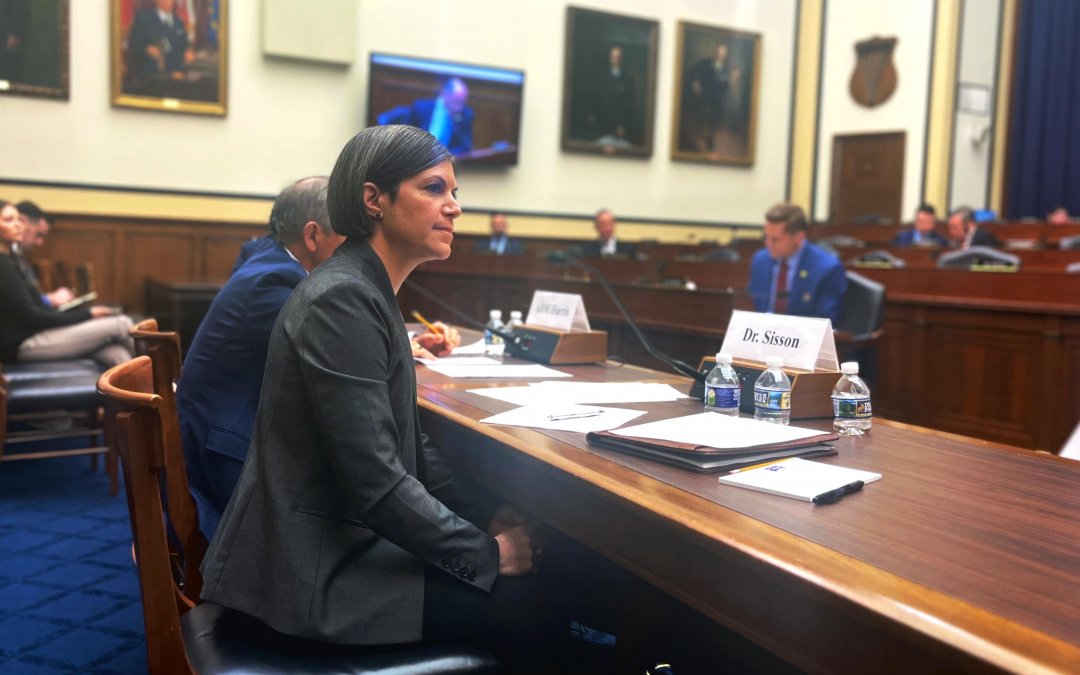WASHINGTON – Lawmakers on Capitol Hill raised new warnings about China’s threats to the U.S. and condemned its brazen attempts at spying after the U.S. Air Force shot down a Chinese surveillance balloon, prompting new worries about the relationship between the two superpowers. Many expressed disappointment that the president made muted mention of the dangers during the State of the Union.
Four congressional committees, including the House Foreign Relations Committee, held hearings focused on China this week as worries loom about Chinese dominance. Congressional members pressed the White House, the Pentagon and the State Department over both their responses to the balloon and their interactions with the rival nation.
In the Senate Foreign Relations Committee hearing Thursday, the tone was stern, serious and incredibly cautious. The atmosphere was tinted by a hue of anxiety as members probed senior administration officials on U.S.-China policy.
“The China challenge affects every region in the world, and you’re going to have to do a better job of resourcing these efforts,” Senate Foreign Relations Committee Chairman Bob Menendez (D-N.J.) said at the hearing. “That means more people in our embassies, it means modernizing the way we do business, it means offering an alternative to China.”
The lawmakers set their priorities on training, technology and techniques. Senators called for greater attention toward Taiwan, greater investment in military technologies and artificial intelligence, and greater diplomatic efforts.
“The PRC (People’s Republic of China) is the only competitor with the intent and means to reshape the international world order,” U.S. Deputy Secretary of State Wendy Sherman testified to the Senate Foreign Relations Committee hearing on Thursday morning.
Additionally, senior officials from the Office of the Director of National Intelligence, the State Department and the Defense Department briefed both the House and the Senate on the balloon in separate closed-door meetings on Thursday morning.
The briefings followed an announcement on Thursday morning from the State Department that the balloon was part of a vast surveillance operation launched by the Chinese military that had collected information from dozens of countries.
“The administration obviously was vigilant in taking down this balloon,” Sen. Richard Blumenthal (D-Conn.) said following the Senate briefing. “But it’s only one of a number that the Chinese have launched over this country and other countries around the world and represents a clear and present danger to our democracy.”
The Senate is also set to receive a broader closed-door briefing on China next Wednesday.
The hearings come on the heels of new revelations about China’s rapid military development. In a Jan. 26 letter to the House and Senate Armed Services Committees, a senior military official informed lawmakers that China now holds more land-based intercontinental ballistic missile launchers than the U.S.
“This should serve as a wake-up call for the United States,” a group of Republican lawmakers wrote in a press release on Tuesday.
The House also voted unanimously Thursday morning to adopt a non-binding resolution written by House Foreign Relations Committee Chairman Michael McCaul (R-Texas) to condemn China’s use of the balloon.
House Republicans previously considered bringing a resolution condemning the Biden administration’s response to the situation to the House floor Tuesday before his State of the Union address, but opted instead to take a bipartisan approach.
During his State of the Union address on Tuesday night, Biden only briefly mentioned China, leaving many Republican lawmakers dissatisfied – especially because China has recently come under fire for the human rights violations of Uyghurs, renewed hostilities toward Taiwan and blatant spy attempts in the United States.
“I thought the president was very inadequate in his description of how we best counter the policies of the Chinese Communist Party,” Rep. French Hill (R-Ariz.) said Tuesday night. “I thought he could have gone into a much more detailed approach and worked with Congress on the right policies.”
Lawmakers in both the House and the Senate expressed frustration with the president’s failure to comprehensively address China in his remarks. Sen. Josh Hawley (R-Mo.) said Biden “has his priorities mixed up” in terms of foreign policy.
“What he should have said is the Europeans need to take the lead here when it comes to Ukraine, and we need to take the lead when it comes to China,” Hawley told Medill News Service following the president’s speech Tuesday night.
The sentiment was shared by those beyond the Republican Party.
“Administration officials eloquently talk about not letting Putin’s bad behaviors become the new normal,” Nury Turkel, chair of the U.S. Commission on International Religious Freedom, a congressionally created federal commission, said in an interview after attending the State of the Union as Hill’s guest. “The same line, same logic can be applied to (Chinese President) Xi Jinping. Why would we allow him to carry out a genocide or threaten a democratic ally of Taiwan on a regular basis?”


